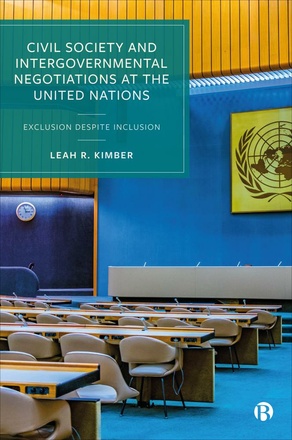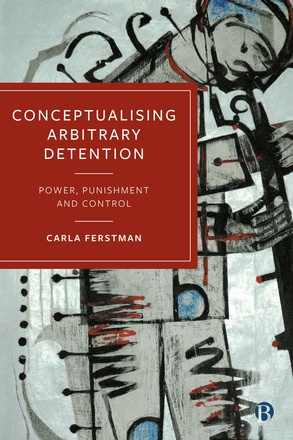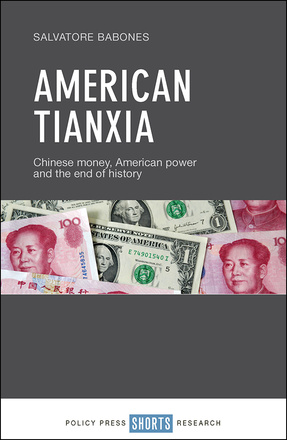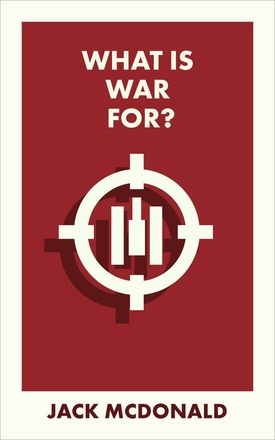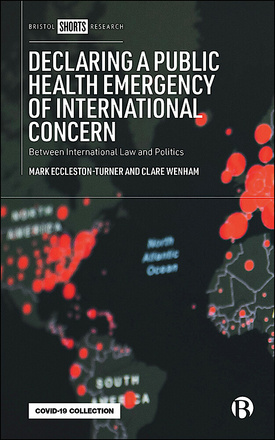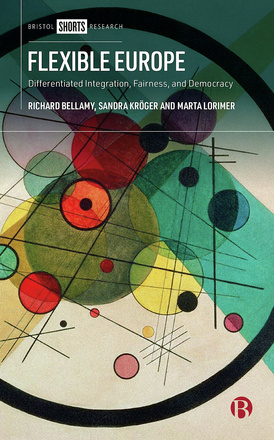International Relations
Civil Society and Intergovernmental Negotiations at the United Nations
Exclusion Despite Inclusion
Since the Earth Summit of 1992, the UN has increased its attention toward civil society, but there has been little analysis of the resulting intergovernmental practices. This book examines the future of international organizations, multilateralism, and how forms of exclusion in civil society are subject to intergovernmental negotiations.
Conceptualising Arbitrary Detention
Power, Punishment and Control
Available open access digitally under CC-BY-NC-ND licence.
This book examines how governments misuse detention to abuse power, suppress dissent and maintain social hierarchies. Proposing solutions for future policy, this is a call for greater respect for the rule of law and human rights.
Post-Liberal Statebuilding in Central Asia
Imaginaries, Discourses and Practices of Social Ordering
Drawing on decolonial perspectives on peace, statehood and development, this illuminating book examines post-liberal statebuilding in Central Asia. Through its analysis, the book highlights the problem with assumptions about liberal democracy, modern statehood and capitalist development as the standard template for post-conflict countries.
American Tianxia
Chinese Money, American Power and the End of History
After a meteoric rise, China's growth has come to a screeching halt. Salvatore Babones provides an up-to-date assessment of how China's economic problems are undermining its challenge to the Western-dominated world order. He tells how liberal individualism has become the leitmotif of American Tianxia.
What Is War For?
This book examines how changes to social rules reshape how states explain their military actions, and changes to technology and society transform contemporary warfare. Analysing the role that war serves in global politics, it outlines the ways in which war affects the contemporary world, from international relations to our day-to-day lives.
What Is Cybersecurity For?
Cybersecurity is one of the key practical and political challenges of our time. This book explains the complexities of global information systems, the challenges of providing security to users, societies, states and the international system, and the multitude of competing players and ambitions in this arena.
What Is History For?
Gildea suggests that the more people who really understand what good history entails, the more likely history is to triumph over myth. He sees positive signs in public history, citizen historians and community projects, debunking claims that ‘you cannot rewrite history’, arguing that good history that’s attuned to its times must be rewritten.
What Are the Olympics For?
While attention is on Olympic triumphs and tribulations, there is much that goes on behind the scenes that is deeply troubling. Boykoff tells us that radical steps are required if the Games are to be fixed and only then will they be truly ‘athletes first’.
Comparing Regional Organizations
Global Dynamics and Regional Particularities
This book provides a comprehensive overview of the evolution and particularities of regional organizations across Africa, the Americas, Asia and Europe since 1945.
Declaring a Public Health Emergency of International Concern
Between International Law and Politics
Addressing multiple empirical case studies, including COVID-19, this multidisciplinary book explores the relationship between international law and international relations to interrogate how a Public Health Emergency of International Concern (PHEIC) is declared and its role in how we collectively respond to outbreaks.
Flexible Europe
Differentiated Integration, Fairness, and Democracy
Clear, balanced and accessible, this book explores the alternative of a flexible European Union (EU) based on differentiated rather than uniform integration. They examine the circumstances and institutional design needed for flexibility to promote rather than undermine fairness and democracy within and between member states.







